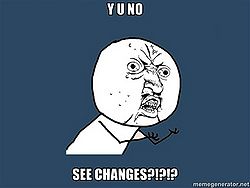Difference between revisions of "Mirdori"
Dhempstead (talk | contribs) (→The Team) |
Dhempstead (talk | contribs) (→The Team) |
||
| Line 3: | Line 3: | ||
[[Image:midoriTeamTitle.png|300px| ]] | [[Image:midoriTeamTitle.png|300px| ]] | ||
= The Team = | = The Team = | ||
| − | *[[Daniel Hempstead]][mailto:dhempstead@learn.senecac.on.ca?subject=bth740_research] | + | *[[Dhempstead|Daniel Hempstead]][mailto:dhempstead@learn.senecac.on.ca?subject=bth740_research] |
*[mailto:mbarciak@learn.senecac.on.ca?subject=bth740_research Mark Barciak] | *[mailto:mbarciak@learn.senecac.on.ca?subject=bth740_research Mark Barciak] | ||
*[mailto:bjchalovich@learn.senecac.on.ca?subject=bth740_research Ben Chalovich] | *[mailto:bjchalovich@learn.senecac.on.ca?subject=bth740_research Ben Chalovich] | ||
Revision as of 16:33, 3 November 2011
BTH740 | Weekly Schedule | Research Projects | Research Essay | Student Resources
Contents
The Team
Web Sites Reviewed
Thesis Statement
Thesis
First
Second
"Why do people not noticed the slight changes in their daily lives, but when they do notice a change, it seems like they can do nothing but complain about the change."
Third
"Throughout this paper we will examine and explore the effects of change blindness on users as they operate three fast-paced websites: Facebook, Google Mail, and MSN."
Final
How do the effects of change blindness negatively affect the usability of three of the most popular dynamic webpages: Facebook, Google Mail and MSN?
Keywords
- change blindness
- attention
- conscious/unconscious thoughts
- vision
- daily routine
- user interfaces
Bibliography
Primary
Surveys, questionaires
Secondary
Daniel J. Simons, "Current Approaches to Change Blindness", VISUAL COGNITION, 2000, 7 (1/2/3), 1-15
<http://citeseerx.ist.psu.edu/viewdoc/download?doi=10.1.1.113.9171&rep=rep1&type=pdf>
"Change Blindness", Wikipedia, 3 October, 2011
http://en.wikipedia.org/wiki/Change_blindness
Mark Frauenfelder, "Change Blindness Experiment", December 14, 2009
http://boingboing.net/2009/12/14/change-blindness-exp.html
Indiana University, "Change Blindness", February 28, 2006
http://cognitrn.psych.indiana.edu/CogsciSoftware/ChangeBlindness/
J. Kevin O'Regan, "Change Blindness Demonstrations", July 14, 2011
http://nivea.psycho.univ-paris5.fr/#CB
J. Kevin O'Regan, "Change Blindness", August 8, 2011
http://nivea.psycho.univ-paris5.fr/ECS/ECS-CB.html
Andrew Dillon, "User Interface Design", October 16, 2005
http://www.ischool.utexas.edu/~adillon/BookChapters/User%20Interface%20Design_files/User%20Interface%20Design.htm
Research Notes
Current Approaches to Change Blindness - Daniel J. Simons - Harvard University, Cambridge, MA, USA
Highlights and Quotes
"Across saccades, blinks, blank screens, movie cuts, and other interruptions, observers
fail to detect substantial changes to the visual details of objects and
scenes." (pg. 1)
"People also show change blindness
when the original and altered image are separated by a “mudsplash” (O’Regan,
Rensink, & Clark, 1999), by a cut or pan in a motion picture (Hochberg, 1986;
Levin & Simons, 1997; Simons, 1996), and even by a real-world disruption
(Simons & Levin, 1998)." (pg.2)
"Phillips,
1974; Simons, 1996). In the flicker paradigm, an original and modified image
are presented in rapid alternation with a blank screen between them. Observers
respond as soon as they detect the changing object. Research using this paradigm
has produced two primary findings: (1) observers rarely detect changes
during the first cycle of alternation, and some changes are not detected even
after nearly 1 minute of alternation (Rensink et al., 1997); and (2) changes to
objects in the “centre of interest” of a scene are detected more readily than
peripheral or “marginal interest” changes (Rensink et al., 1997),"
(pg.3)
"Both the flicker paradigm and the forced choice detection paradigm are
intentional change detection tasks in that observers know that changes will
occur and actively search the display to find differences. This work demonstrates
that observers are change blind evenwhen their primary task is to search
for change."
(pg.4)

